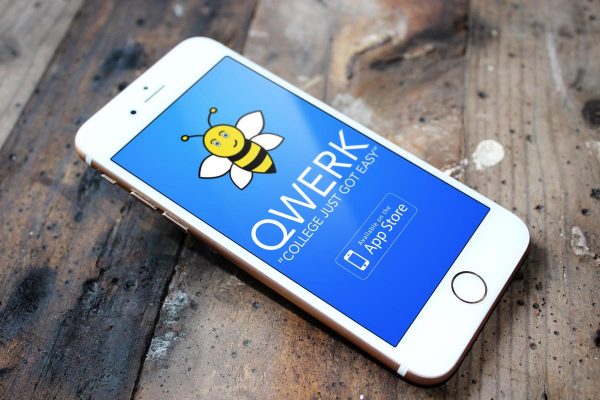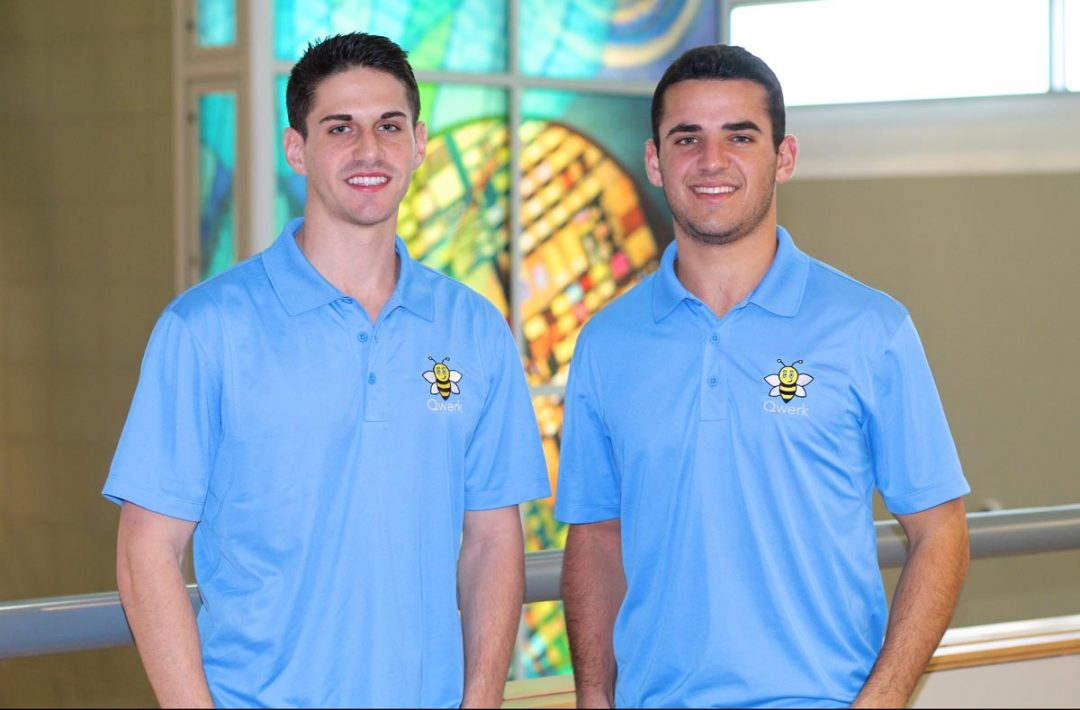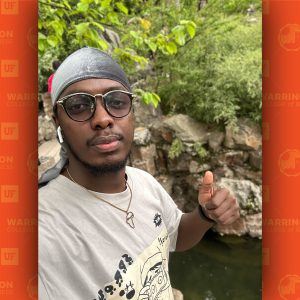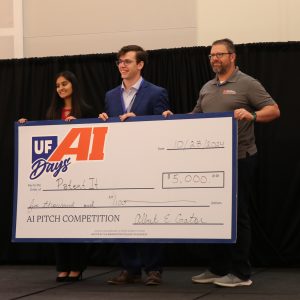Men at Qwerk
How many times have you overheard a stressed-out UF student say they’d be willing to pay someone a small fee to take care of a menial task?
Jonathan Katz has lost count how many times he’s heard that familiar refrain. So he and fellow Warrington student Alex Schepps did something about it.
The result is Qwerk, a mobile app connecting students needing tasks fulfilled with students needing work. Qwerk is one of 16 innovative business concepts competing in the 2016 Big Idea Gator Business Plan Competition, which begins today.
2016 Big Idea Gator Business Plan Competition
Semifinals: 1:30 p.m. today, Heavener Hall
Finals: 1:30 p.m. Friday, Bryan Hall
The concept behind Qwerk is simple and tailor-made for college campuses.
“I saw a lot of kids needed a way to allocate their time more efficiently between their schoolwork, their social life, and extracurricular activities they’re involved in,” said Katz, Qwerk’s Co-Founder and Chief Executive Officer. “And then we saw the other side—students who needed to make money, but didn’t have time for a full-time job. So we thought, ‘why not bring the two together?’”
The app works like this: For instance, a UF student studying for an exam is in dire need of dinner, but isn’t able to or doesn’t want to leave his study session. Nor does he want to pay the often costly delivery fees for area eateries.
So after purchasing the meal, the student posts his delivery request and fee (with gratitude) he’s willing to pay on Qwerk. Another student using Qwerk accepts the bid, delivers the meal and is paid for delivery.
Katz, a finance major, told Schepps about his concept in March 2015.
“I thought this is extremely practical,” said Schepps, 21, an accounting major. “It solves fundamental problems that students have. At a big school like UF, the potential for this thing is through the roof. I was all in.”
After refining the concept, Katz, 21, and Schepps searched for UF engineers to build the application. But Katz said their idea didn’t garner any interest.

The app launched in February, and was well-received. Qwerk was downloaded more than 1,000 times on its first day, and thus far, approximately 250 jobs have been completed.
Qwerk also has a buying/selling platform, much like Craigslist or eBay, where students can purchase or sell various items. The company earns revenue from convenience fees added to completed jobs, and from taking a small percentage of a seller’s take after a purchase.
If Qwerk wins the Big Idea competition’s $25,000 grand prize, Katz and Schepps, Qwerk’s Chief Financial Officer, said the money would be used to help the company’s expansion. They hope to make significant upgrades to the app this summer, and expand Qwerk to five other colleges in Florida.
“To be in the top 16 from 300 entries is pretty amazing,” Schepps said. “That’s a confidence boost in itself. To win this, would be incredible.”
Did You Know?
- The company’s name comes from combining the words “quick” and “work.”
- Coffee runs and food deliveries make up the majority of Qwerk jobs.
- Katz and Schepps are no strangers to pitch competitions. Qwerk finished second in a pitch competition at Washington University, reached the semifinals of a similar competition at George Washington University, and participated in Inc. Magazine’s Coolest College Startups competition.




